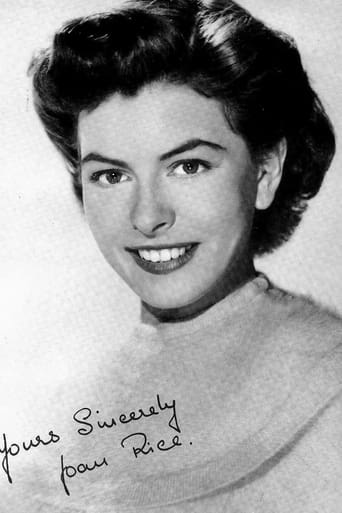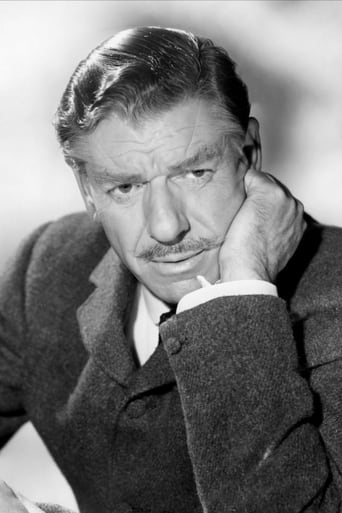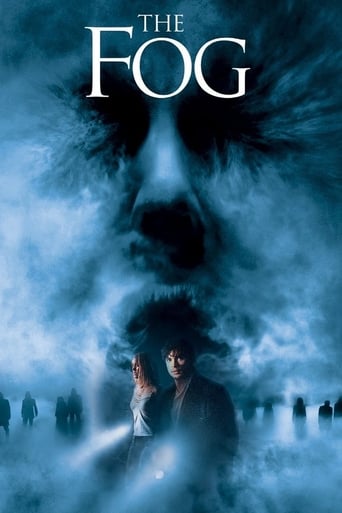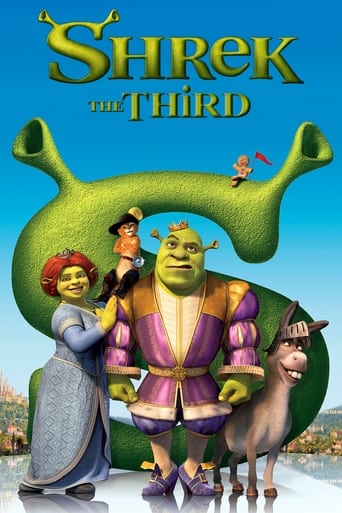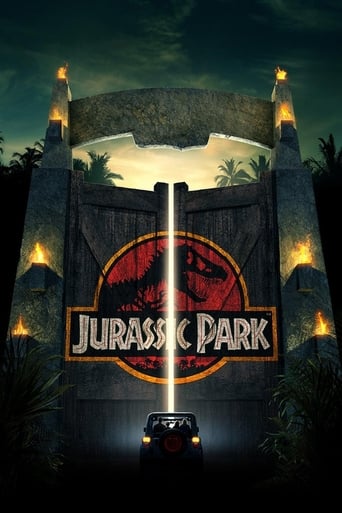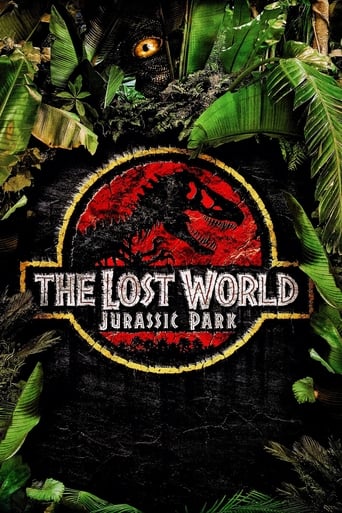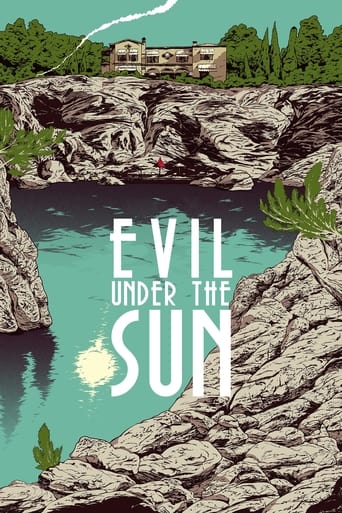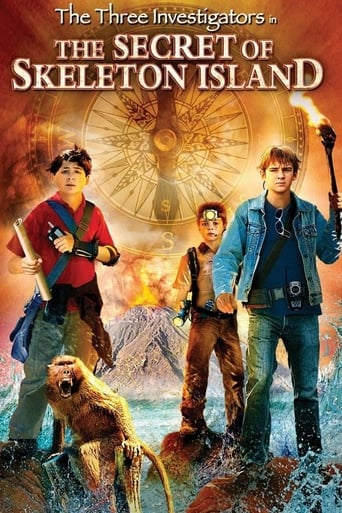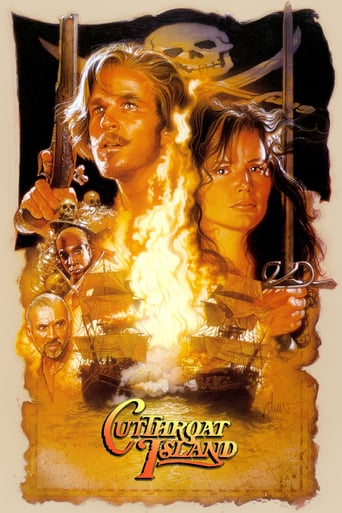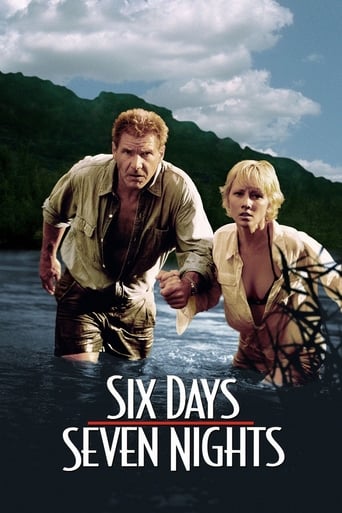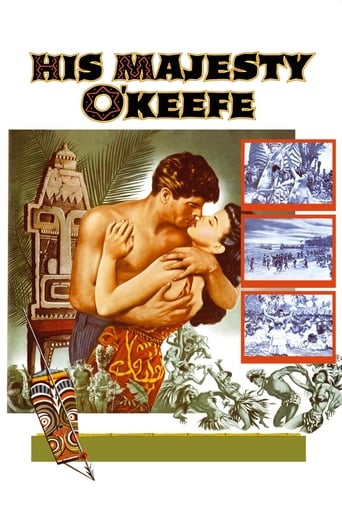

His Majesty O'Keefe (1954)
Men steal for it. Nations go to war for it. The it is oil - and it grows on trees. Coconut oil is the precious lifeblood of 1870s South Seas traders. And lots of real blood will be spilled to get it! Screen royalty Burt Lancaster ist His Majesty O'Keefe in this last of three adventures that (along with The Flame and the Arrow and The Crimson Pirate) blew a revitalizing wind into the sails of the swashbucker genre. Action, cunning and derring-do are watchwords of the title seafarer as he befriends, defends and ultimately rules the islanders of exotic Yap. Lensed on gorgeus Fiji locations, grandly scored by Robert Farnon and rousingly directed by Byron Haskin, His Majesty O'Keefe delivers heroics of regal proportions.
Watch Trailer
Cast


Similar titles
Reviews
The cinematography is often quite beautiful and the dances and ceremonies of the Pacific Island natives are fascinating. The story moves along at a brisk pace with lots of surprises and Burt Lancaster gives a vibrant, relaxed and fun performance. The only problem is the overt racism toward the islanders in the film. O'Keefe (Lancaster) is the good guy because he only wants to exploit the natives, while the bad guys want to exploit and enslave the natives. There is a very interesting and sweet moment when O'Keefe reconsiders his exploitation of the natives and asks, "Where did I go wrong?" If the film didn't contain this reflective moment, I would have probably been more critical of the film's racism which reflects the prevalent ideology of 1950's Hollywood. But does a fairly progressive anti-exploitation message excuse the racism in the film? Burt Lancaster fans and adventure fans should enjoy the film. Those who see racist ideology as a sickness might have problems getting through the film
Right on the heels of his first Academy Award nominated performance in From Here To Eternity came this film which was a return to the more traditional roles Burt Lancaster did in his early years. Besides the charismatic actor's presence, His Majesty O'Keefe boasts some splendid location photography in the Fiji Islands. And most of you thought it was Marlon Brando who discovered the South Seas in that remake of Mutiny on the Bounty.The year is 1870 and Captain O'Keefe (Lancaster) is set adrift by his mutinous crew in the same manner John Wayne was in Wake of the Red Witch. But he manages to be rescued on the island of Yap by the natives and given shelter by German missionary Andre Morrell.Lancaster's not a man to pass an opportunity up when he sees all the unpicked coconuts around which will yield the valuable copra. The trick is to get the natives to work for it. Before long Lancaster is mixing in the political situation on Yap among the various tribal chiefs and in the European politics where all kinds of powers are making their presence felt in the South Pacific.In fact the South Seas were undergoing colonization then much like Africa and Asia. By the end of the 19th century even before the Spanish American War when we took over Spain's colonies there, we were among many powers like the British, Germans, French, Spanish, and the Japanese who were expanding into the Pacific.Because he leads a rescue of the island from out and out slavers led by Charles Horvath, Lancaster is proclaimed a King of Yap. But the crown carries responsibilities and people who resent him having it.Lancaster playing a larger than life role and the splendid location cinematography of Fiji make His Majesty O'Keefe fine viewing and it holds up well today. A must for Burt Lancaster's many fans.
Rowdy, masculine, adventurer David O'Keefe (Lancaster) sees millions of dollars of copra ready to be harvested from the coconuts on Yap, a South Sea Island. The local representative of a German trading company (Andre Morell) is sympathetic but hopeless: the "natives" are too lazy to work because they already have everything they want, and money is not among the things they want. Lancaster finally finds out what motivates the natives to work -- "fei." It's a kind of local currency, but it's stone, harvested from a distant island and involving a dangerous voyage to and fro. Using dynamite instead of hand picks, Lancaster brings them more fei than they can eat, and the Yapese elect him king. He and his supporters defeat incursions by Bully Hays and the German trading company (at the cost of Morrell's life) and he marries a Caucasian girl and everyone lives happily ever after.It's a bully movie, full of the kind of raw capitalism that produced Diamond Jim Brady and the Gilded Age of McKinley and colonialism generally. It's marvelous seeing Lancaster do his own stunts. And Joan Rice is a perfect innocent virgin.Lancaster has a tooth damaged in a fist fight with Bully Hayes. He is taken to a Chinese dentist and is asked whether he'd like expensive gold, that will last longer, or cheap tin. "Tin," replies Lancaster in the dentist's chair, "and drive it in to last." Most of us wouldn't have said that. The film was shot in the 1950s in Fiji, in Melanesia, not in Yap, in Micronesia. There are physical differences between the populations, but it doesn't affect the fun of the movie.Lancaster was never more fit than here. He bounces around with his Hollywood-shaved pectorals, and defeats every physical challenge. It's only the moral questions that finally leave him nonplussed.I saw this in Elizabeth, New Jersey, as a school kid with my date, and she translated the German for me. Now, after having spent two years studying the natives on a Polynesian Island as an anthropologist, I can follow the native language about as well as Eleanor followed the few words of German. What curious twists Clio, the muse of history, provides us.For what it's worth, the story of fei is real. Fei was valuable for the same reason that gold (or any other mineral or gem) is valuable. It's hard to get. You had to work like nobody's business to find some. It's called the "value added" theory of goods. You add value to some commodity because of the labor that has gone into the getting of it, as Freidrich Engels and others have pointed out. (Fresh air is worthless because no value had been added to it, so nobody charges you to breathe. Compressed air at the gas station costs money because it has been worked on.) Fei is made of stone. On Yap, in real life, a boat with some fei was sunk offshore, but the fei was not lost. Since everyone knew it was out there, although at the bottom of the ocean, it was still used as currency. Well -- why not? Is it that much different from our printing more Treasury bonds when WE need money? Just substitute paper for stone. The danger illustrated in this movie is that if you use modern mining methods to collect fei, you get too much of it and it becomes worth less. Ditto for printing too much money. How did I fall into this disquisition? End of confusing economics lesson.This is something more than just another action flick in an exotic setting. It puts Lancaster in something of a dilemma. Which is more important -- profit or social responsibility? The question has resonance.
Burt Lancster was 41 when filming in Fiji - two years older than in "the Crimson Pirate" and four years after "The Flame and the Arrow" but I still expected Nic Cravat to turn up as his half Chinese mate or an island Chief. So one wonders what Steven Spielberg would have made out of the script - introducing some real sex instead of Haskin's suggestions that Lancster was not that bothered and far more athleticism into the fights where pulled punches were not even covered by the soundtrack ? But the Technicolor has more than stood the time making me wonder just how fr away Yap was from "Celebrity island" and why climbing for Copra was not one of their selected activities. Any film re-shown on Television has to stand up against the available alternatives so perhaps that I preferred to stop work, watch this film in its entirety rather than watch Tim Henman lose his first Two sets played at Wimbledon should be recommendation enough ?



